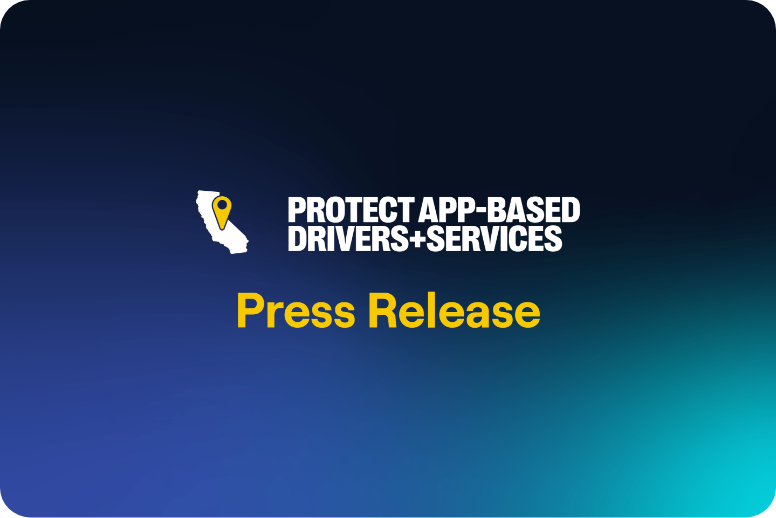SACRAMENTO—In case you missed it, a Washington Post column waded into the game of chicken California is playing with app-based rideshare and delivery companies, concluding that unless a change is made to protect the independent contractor status of app-based drivers, “…the ones who will really get burned are the residents who depend on these companies for income, transport and vital services such as grocery delivery that Gonzalez and her colleagues have decided Californians will somehow be better off without.”
The change being advocated for can be found in Proposition 22. Prop 22 would protect the ability of California’s one million app-based drivers to work as independent contractors with control over where, when, how long and for whom they work. It provides new earnings guarantees to drivers along with benefits, like health care. Prop 22 also would save app-based rideshare and delivery services that millions rely on for safe rides and home delivery of food, groceries and medicines.
From the column, “California’s high-stakes game of chicken with Uber and Lyft”
“They [California legislators in support of AB 5] apparently didn’t realize that not everybody wanted such jobs; that some valued the flexibility of working only when they wanted to. Perhaps they did not know many companies generally can’t offer such flexibility to employees who are entitled to all manner of benefits, from mandated breaks and a comfortable chair, to paid sick leave and health insurance. Which is why employers of hourly workers require regular shifts instead of saying, ‘Show up when you have a few minutes to spare.’”
“Today, the unemployment rate in California is north of 13 percent. Uber and Lyft have seen their ride-hailing business collapse as people stayed home, and their ancillary businesses, such as food delivery, haven’t made up the lost revenue. It was doubtful they could ever have stayed in California with AB5 in effect, but until the coronavirus is conquered, the thing is clearly impossible.”
“But the ones who will really get burned are the residents who depend on these companies for income, transport and vital services such as grocery delivery that Gonzalez and her colleagues have decided Californians will somehow be better off without.”
About Proposition 22
A major new study confirms an employment model would eliminate up to 900,000 app-based jobs, a reduction of between 80-90 percent of drivers currently driving today. These job losses will come at the worst possible time, when California is facing high unemployment and when app-based work opportunities will provide a lifeline for people to earn income. In addition, more than 71 percent of app-based drivers want to remain independent contractors, despite efforts by politicians to force them to become employees.
Proposition 22 would ensure driver flexibility, by protecting the ability of California’s one million app-based drivers to choose to work as independent contractors while providing new earning guarantees and benefits, including health care. These include:
- Prop 22 improves the quality of app-based work by requiring app-based platforms to provide drivers:
- Guaranteed minimum earnings (120% of California minimum wage), including compensation toward expenses
- Funding for new health benefits for drivers who work at least 15 hours a week
- Occupational accident insurance to cover injuries and illnesses on the job
- Protection against discrimination and sexual harassment
- Prop 22 implements strong new public safety protections:
- Recurring background checks of drivers
- Mandatory new safety courses for drivers
- Zero tolerance for alcohol and drug offenses
- Making it a crime to impersonate a driver
The Latest News

Press Releases
California Supreme Court Unanimously Upholds Prop 22 in Historic Ruling
Date: July 25, 2024 Contact: Molly Weedn, (415) 209-4217 [email protected] California Supreme Court Unanimously Upholds [...] Read more
Press Releases
PADS Responds to Conclusion of Oral Arguments on Prop 22
Date: May 21, 2024 Contact: Molly Weedn, (415) 209-4217 [email protected] The Coalition to Protect App [...] Read more